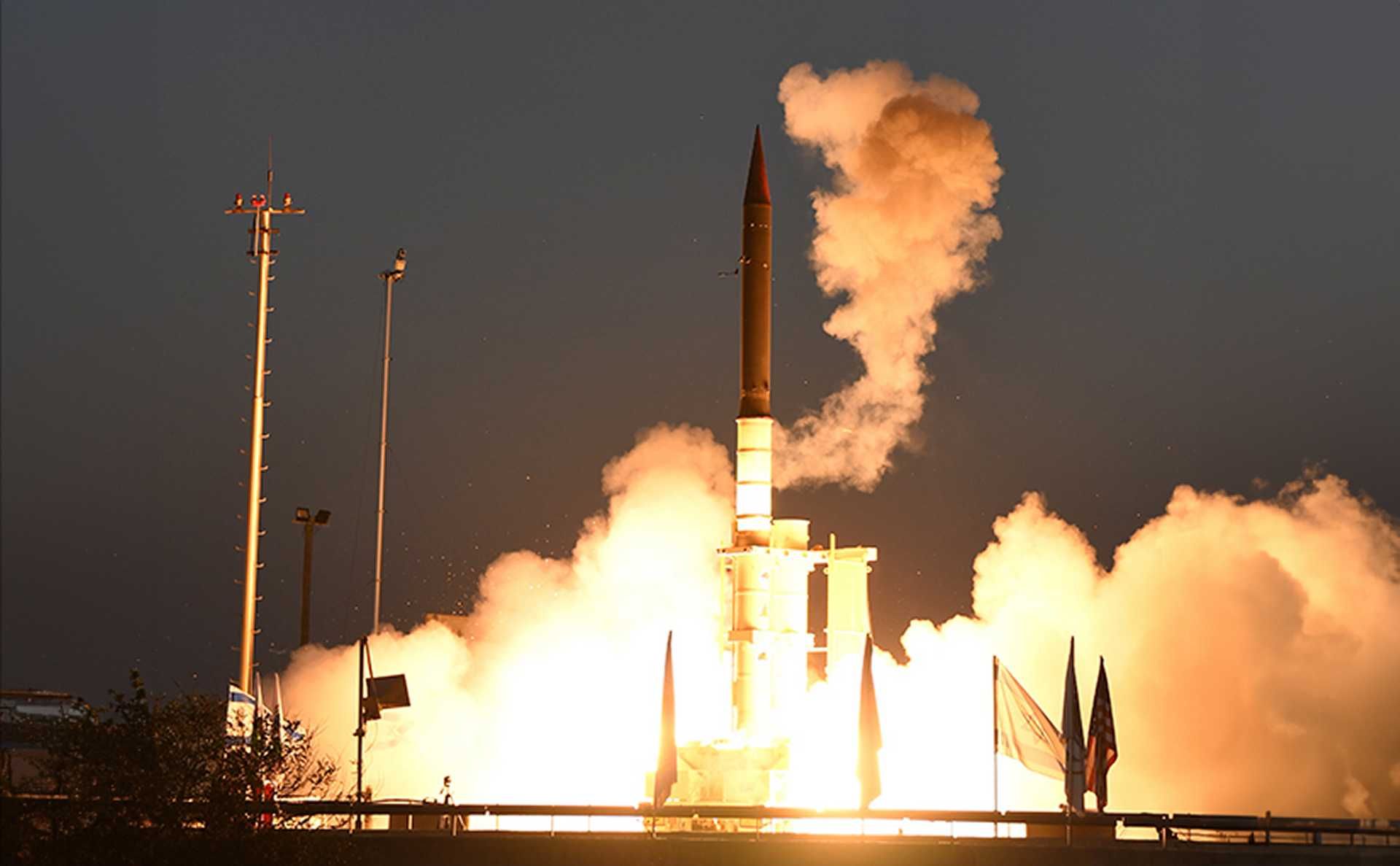Breaking News
Israel to expand production of Arrow-3 air defense missiles due to growing missile threats.
On December 24, 2024, the Israel Ministry of Defense announced the expansion of its Arrow 3 interceptor procurement program through a multi-billion-shekel contract with Israel Aerospace Industries (IAI). The agreement, signed by Maj. Gen. (Res.) Eyal Zamir, Director General of the Ministry, aims to address increased missile threats, particularly from the Houthi movement in Yemen, by replenishing and expanding existing stockpiles of Arrow 3 systems. Recent events, such as missile launches targeting Eilat and the Dan Bloc, have underscored the system's operational use.
Follow Army Recognition on Google News at this link

The Arrow program, initiated in 1986, includes two primary interceptors: the Arrow-2, for atmospheric interception, and the Arrow 3, designed to engage threats in the exo-atmospheric phase of their trajectory. (Picture source: IAI)
The signing ceremony was conducted at the Ministry of Defense headquarters in Tel Aviv, with the participation of senior officials, including Brig. Gen. (Ret.) Dr. Daniel Gold, Head of DDR&D; Moshe Patel, Director of IMDO; Boaz Levy, CEO of IAI; and CPA Dekel Cohen, Head of the Ministry’s Finance Department. The specific value of the contract, managed by the Israel Missile Defense Organization (IMDO) under the Directorate of Defense Research and Development (DDR&D), and the number of interceptors to be delivered have not been disclosed, citing security concerns. However, each interceptor is estimated to cost approximately $4 million.
The ballistic missile threat against Israel has significantly increased, particularly from the Houthi movement in Yemen. Recent attacks involved ballistic missiles and drones targeting Israeli territories, including urban areas. These incidents have resulted in injuries and infrastructure damage. In response, Israel has launched airstrikes on Houthi positions and called for the international community to label the Houthis as a terrorist organization. Israel has also indicated potential measures to target Houthi leadership, emphasizing the connection between these attacks and broader regional dynamics involving Iranian support for allied groups.
The Arrow program, initiated by the Missile and Space Systems Division of IAI in 1986, became operational in 2000. It includes two primary interceptors: the Arrow-2, for atmospheric interception, and the Arrow 3, designed to engage threats in the exo-atmospheric phase of their trajectory. The Arrow 3 system is one component of Israel’s multi-layered defense framework, which also includes the Iron Dome and David’s Sling systems.
The Arrow 3 is engineered to intercept ballistic missiles, including intercontinental ballistic missiles, outside the Earth’s atmosphere. The system features a two-stage engine, a gimbaled seeker providing hemispheric coverage, and thrust vectoring for maneuverability. It operates with a maximum reported range of 2,400 kilometers and can engage threats at altitudes exceeding 100 kilometers. Using hit-to-kill technology, the system can intercept multiple ballistic missiles within 30 seconds. It is launched from fortified underground silos and has the capacity to be deployed into space, potentially providing anti-satellite capabilities.
Since becoming operational in 2017, the Arrow 3 system has been used in multiple scenarios. Its first operational use occurred on November 9, 2023, when it intercepted a Houthi missile near Eilat. During the 2024 Iran-Israel conflict and Red Sea crisis, the system intercepted multiple Houthi missiles, including those launched on September 14 and September 28, 2024. The system’s design allows it to handle salvos of more than five missiles within a short engagement window.
The Arrow program is funded jointly by Israel and the United States. Germany is set to acquire the system under the European Sky Shield Initiative as part of a $3.5 billion procurement approved by the Bundestag in June 2023 and the United States in August 2023. Deliveries are scheduled to enable operational capability in Germany by 2025. This acquisition marks the largest defense procurement in Israel’s history. Additionally, Azerbaijan evaluated the Arrow 3 system in 2021 as a potential purchase during a period of heightened tension with Iran.


























